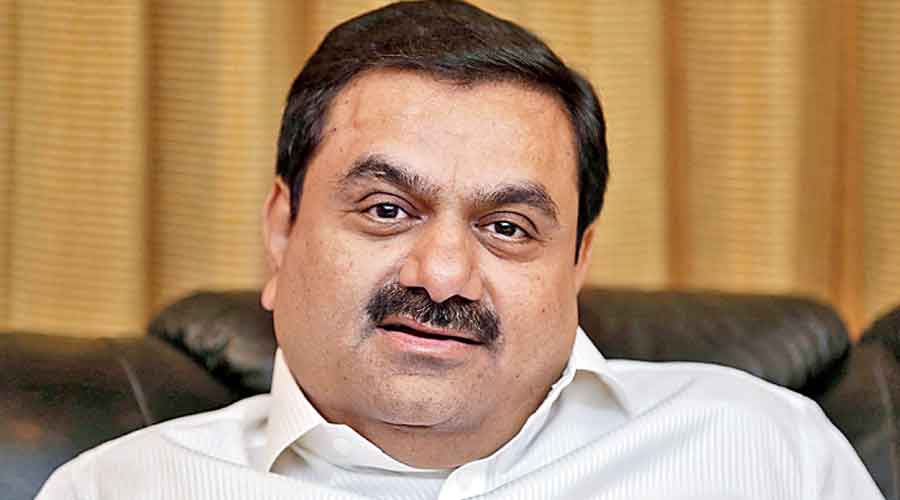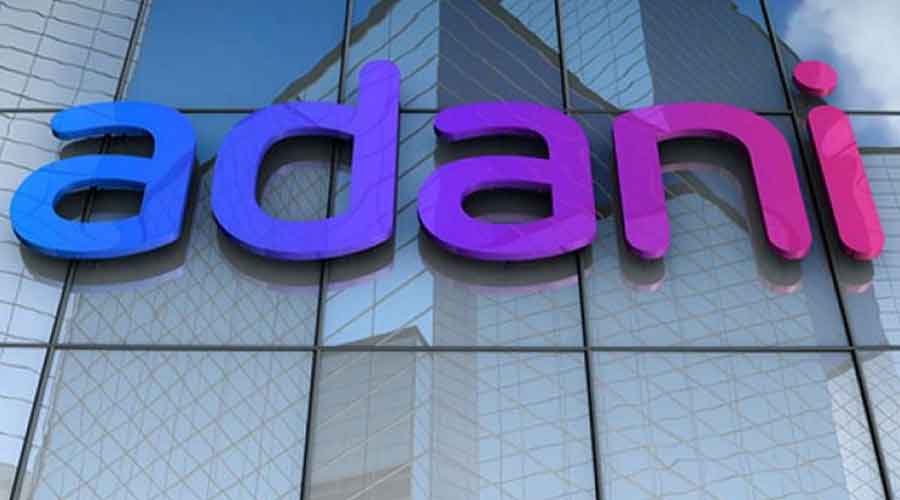The Adani Group has bought a closed rice-processing unit in East Burdwan, signalling that the Gujarat-headquartered industrial house led by chairman and managing director Gautam Adani is expanding its footprint in Bengal.
“We have taken one closed and non-operational rice-processing unit in Burdwan,” a spokesperson for Adani Wilmar Ltd (AWL), a joint venture between the Adani Group and the Wilmar Group, said.
AWL is India’s leading manufacturer of edible oil and also deals in wheat flour, rice, pulses, sugar and packaged food.
Several rice mill owners expressed apprehensions about the entry of a big corporate house in the sector. A CPM-affiliated peasants’ body has begun protests, claiming a threat to farmers.
Sources said AWL had bought the unit at Jaugram in East Burdwan — known as the rice bowl of Bengal — last month and already made it operational.
“The company has also bought a few acres of land near the processing unit as it plans to set up a large storehouse,” a source said.
Multiple sources confirmed that AWL had collected information on about 20 other non-performing and closed rice-processing units in the district. They said the company planned to acquire more such units.
Rice industry insiders said that AWL’s decision to scoop up a rice-processing unit was significant, particularly in East Burdwan which has around 450 such units, 350-odd among them operational.
“These rice-processing units, called rice mills, are primarily owned by small players who buy paddy from farmers, produce rice and sell it in the open market,” a rice mill owner said.
“The entry by AWL, which is set to acquire more units, is bound to change the rules of the game.”
The Adani group already has a presence in Bengal, with AWL running a large refinery for vegetable oils in Haldia. The group, India’s largest private port operator, has also forayed into Bengal’s maritime sector, taking control of a berth at the Haldia Dock Complex.
The group’s port and special economic zone (SEZ) section is one of the shortlisted bidders for the Tajpur port, a dream project of chief minister Mamata Banerjee.
The Adani group has in a joint venture with the Indian Oil Corporation launched a city gas distribution project, under which the company is to supply CNG through pipelines in various urban areas of Bengal. The group is also looking to build roads, such as National Highway extensions, in Bengal.
“There is no doubt that the group is looking at Bengal with great interest.... Gautam Adani will be the main draw at the state’s annual investment summit next month,” a senior state government official said.
He referred to the presence of Adani’s son Karan at a meeting that Mamata held with industrialists last month.
The official said AWL’s interest in rice-processing units was “good news” for Bengal as well as the sector since several rice mills were now inoperative, mainly owing to indebtedness to banks and other financial institutions.
Rice mill owners are, however, worried that it will be difficult to compete with AWL’s deep pockets.
“It’s a threat for us. We can’t compete if such big corporate players acquire a large number of mills. They can give larger advances to the farmers and longer time to their buyers for payments. We shall discuss this in our association,” said Subrata Mondal, secretary of the Burdwan District Rice Mills Association.
The CPM-led All India Kisan Sabha has begun organising farmer rallies in pockets of villages in East Burdwan.
“It’s definitely a threat to the farmers,” said Amal Haldar, state secretary of the Kisan Sabha.
“The Adani group will first offer a good price to them for their paddy to grab the entire market. When the company has a monopoly, the farmers will be virtually forced to sell to them.... They will expand their business in other parts of the state too and drive out small businessmen.”
AWL officials said they would work closely with local farmers to promote sound practices, reduce wastage, smoothen the supply chain and ensure fair prices.
An AWL spokesperson said: “We stand committed to Bengal agriculture and farmers, and will work towards improvement of the agri value chain.”












